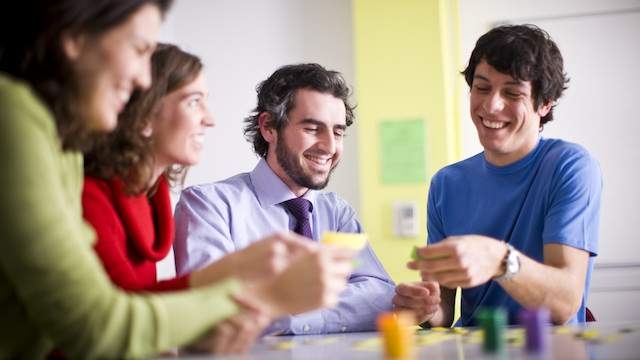New EU Program for Culture and Creativity Launched for Eastern Partnership Region
A new EU program for culture and creativity has been launched by the European Union to support the contribution of cultural and creative sectors to sustainable humanitarian, social and economic development in Armenia, Azerbaijan, Belarus, Georgia, Moldova and Ukraine.
“The five-year program will reframe the debate on the 21st century concept of culture among state bodies and key cultural players in the region and promote an understanding of the positive impact creative industries can have on employment, small and medium businesses, the role of municipalities and social engagement,” said Renate Utzschmid, Programme Manager, EC Directorate-General Neighbourhood and Enlargement Negotiations.
“Although a regional program, it will be heavily country-focused with designated professional country coordinators,” stated the press release.
The program’s activities will be carried out through workshops, intensive training, online learning platforms, study visits and partnership fairs, bringing together public and private actors, government and civil society.
The program, the budget of which is €4.2 million, will be managed by a consortium led by the British Council, in partnership with the Soros Foundation Moldova, the National Centre for Culture of Poland and the Goethe-Institut.
Georgia Today spoke to Maya Darchia, the Arts Manager of the British Council, and Director of the British Council, Zaza Purtseladze.
“This project comes as the second phase of a cultural project initiated by the British Council and funded by the EU. We are currently at the information and needs assessment stage,” said Ms. Darchia. “While the six countries involved in the program share a similar history in terms of their Soviet past, I can say Georgia is ahead in the steps it has taken in its European aspirations and in designing a cultural strategy.”
“The Ministry of Culture will be issuing the first draft of its new Culture Strategy at the end of this year,” said Mr. Purtseladze. “The Ministry of Culture [of Georgia] has shown it is keen to work more closely with the arts sector and to cooperate with international organizations,” Ms. Darchia added.
Asked about the importance of the program for the Georgian arts society, Mr. Purtseladze was quick to point out the virtues: “The program is hugely important for developing Georgia in general and raising the role of the creative industry for the social development of the country.”
The program is designed to benefit the entire cultural community; from the Ministry of Culture and various arts and culture centers, right down to the artists, fashion designers and film-makers themselves.
“In Georgia there is a lack of understanding of the benefits of the [cultural] sector. We, through this project, aim to show how a good cultural industry can be created and sustained through international dialogue and capacity building,” Ms. Darchia said.
The method of training will vary. Ms. Darchia highlighted the planned online resources, which will allow the sharing of experience and expertise across borders while avoiding the expense of travel.
Mr. Purtseladze also spoke about the eight-month English language program that the British Council launched in May in collaboration with the Ministry of Culture: ‘English as a Main Tool of Communication in the Arts Sector,’ which is aimed at improving the English language knowledge of practicing art professionals and cultural managers. “We hope to extend the project once it ends in March next year,” he said.
And at the end of this five-year EU cultural program?
“In the ideal scenario, the government authorities and representatives of the art sector will be working more closely and communicating more effectively, as well as there being an increased link between Georgia and international cultural programs,” Ms. Darchia said with an optimistic smile.
Katie Ruth Davies












